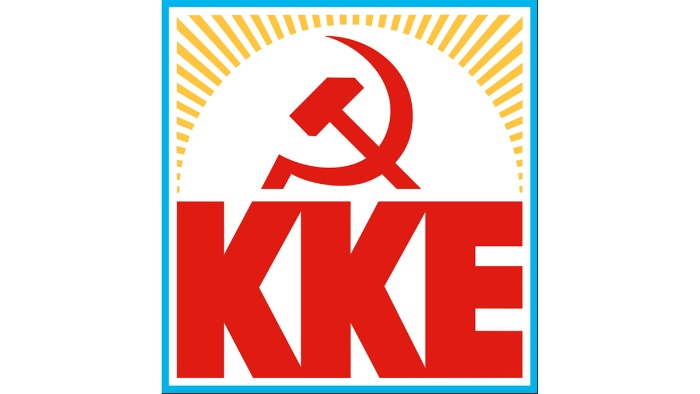Links to the old web pages of KKE
The position of the KKE on civil marriage of same-sex couples and its impact on children's rights

The CC of the KKE recently met and issued a resolution under the title "The position of the KKE on civil marriage of same-sex couples and its impact on children's rights", on the occasion of the relevant bill put forward in parliament by the right-wing/liberal government of New Democracy. Below are some excerpts of the resolution, while the full text will be published in various languages in the near future.
"The CC of the KKE discussed the Party's position on the bill on 'Civil marriage equality, amendment of the Civil Code and other provisions', which was submitted for public consultation on 25 January 2024. The provisions of the bill reveal the main issue it seeks to resolve.
The bill is not about the social recognition of the possibility for same-sex couples to choose a form of living together and the legal regulation of certain personal, economic and social relations between them. It is not about the need to break down social prejudice against them that may hinder their decision to cohabit, for example difficulties in renting a house, getting a job, etc.
Undoubtedly, the institutionalization of civil marriage of same-sex couples promotes the recognition of their shared parental responsibility, as we already foresaw in 2015 when the Civil Partnership was extended to same-sex couples. However, the recognition of shared parental responsibility for same-sex couples can only be brought about by circumventing the objective complementarity of woman and man in the reproduction of the species, in procreation.
Article 10 legitimizes the commercialization of procreation and adoption in order to circumventthe motherhood-fatherhood relation. In essence, the bill further promotes the commercialization of the process of having children, by institutionalizing the recognition of international commercial surrogacy by same-sex male couples, and of in vitro fertilization (IVF) with donor sperm for same-sex female couples.
The same applies to adoption. Given that the number of adoption applications filed by couples or individuals is many times higher than the number of children up for adoption in child protection structures, the way is essentially paved for trafficking in refugee children, but also in children from countries where people are starving, where contraceptionmethods are not available or used, and where human life, particularly infant and child life, is trivialized.
Therefore, the first and main reason for the KKE's refusal to extend civil marriage to same-sex couples, which enshrines shared parental responsibility, is the commercialization of procreation and adoption.
A second, equally important and related reason is that, in practice, the articles of the bill bypass the social right of a child to the motherhood-fatherhood relation as an evolving biosocial relationship.
Our Party considers that parenthood is the relationship between a parent and child, which at the individual level reflects existing social relations. The KKE's position is based on the rights of the child, i.e. the child's social need to have ties with its mother and father. This need has an objective basis: the interrelated motherhood-fatherhood relation, resulting from the complementary function of man and woman in the process of procreation. The laws that are enacted must defend this right, not undermine it.
The dialectical–materialist approach to the motherhood-fatherhood relation does not imply either absolute biologism or a denial of this complementarity. The motherhood-fatherhood relation is an exclusively human characteristic, beyond the instinctive protection that every mammal provides for its offspring. This complementary relation has a natural basis —because humans reproduce naturally— and from the very first moment it takes on a social character.
Humans are social natural beings, i.e. their natural needs, like their social needs, can be met exclusively in a social way. Thus, motherhood and fatherhood are inherent in the human species. Humans are the sum total of their social relations, a fact that does not negate their biological nature, but includes it. This means that fatherhood and motherhood cannot be detached from both biological background and social relations.
The more humans evolve socially, the more consciously they must approach individual responsibility for procreation and realize their responsibility towards their offspring, which is objectively dependent on the parents —especially on the mother— for a considerable period of time. The exclusion of human - social motherhood means that motherhood stops being a fruit of the long evolution of humans.
The KKE's refusal to extend civil marriage to same-sex couples is not related to the sexual orientation of each individual, to its stance towards homosexuality or bisexuality as an expression of sexuality. We recall, moreover, that the KKE has made legislative proposals and developed political actions in order to abolish any form of isolation, condemning any form of racism against people of homosexual orientation. We oppose the exclusion of homosexuals from apprenticeship, employment, housing, access to any social - cultural - sporting or other activity. The KKE fights against any kind of discrimination based on race, gender, colour, religion, national origin and sexual orientation, with a view to the need of the working class for class unity, to the common interests of the great majority of the Greek people, of all the peoples of the world.”







